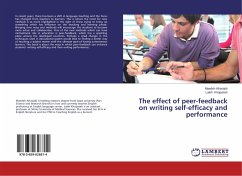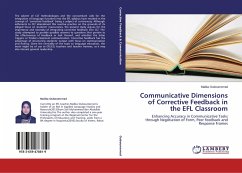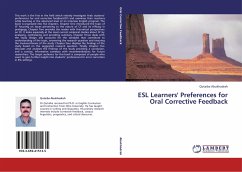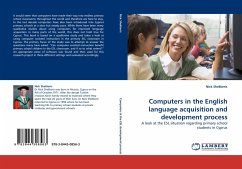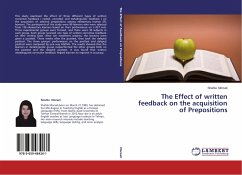
The Effect of written feedback on the acquisition of Prepositions
Versandkostenfrei!
Versandfertig in 6-10 Tagen
36,99 €
inkl. MwSt.

PAYBACK Punkte
18 °P sammeln!
This study examined the effect of three different types of written corrective feedback ( coded, uncoded, and metalinguistic feedback ) on the acquisition of selected prepositions among elementary Iranian EFL learners. The participants of the study were 90 learners who were selected from 136 elementary learners based on their performance on a KET test. Three experimental groups were formed, and there were 30 subjects in each group. Each group received one type of written corrective feedback on their writing tasks. After ten treatment sessions, the learners were given a posttest. Three weeks aft...
This study examined the effect of three different types of written corrective feedback ( coded, uncoded, and metalinguistic feedback ) on the acquisition of selected prepositions among elementary Iranian EFL learners. The participants of the study were 90 learners who were selected from 136 elementary learners based on their performance on a KET test. Three experimental groups were formed, and there were 30 subjects in each group. Each group received one type of written corrective feedback on their writing tasks. After ten treatment sessions, the learners were given a posttest. Three weeks after the posttest, they took the delayed posttest. The three groups' performance on the posttest and delayed posttest were compared by one way ANOVA. The results showed that the learners in metalinguistic group outperformed the other groups both on the posttest and the delayed posttest. It was found that written metalinguistic corrective feedback helped learners to improve in accuracy.





